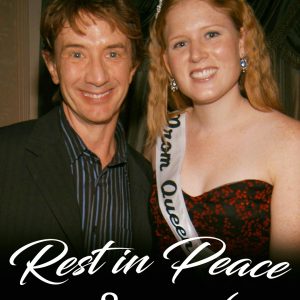Joan Bennett Kennedy’s life, beneath its polished public image, unfolded as a complex blend of privilege, expectation, quiet artistic devotion, and deeply private struggle. Although often seen through the lens of formal photographs and carefully staged appearances, her personal world contained layers that few outside her family understood. A talented pianist with advanced training in education, she relied heavily on music as a stabilizing force throughout her life. She once shared that an early mentor encouraged her to return to the piano whenever the pressures of adulthood felt too heavy to carry—advice she took to heart and followed faithfully. Those quiet moments at the keyboard became her personal sanctuary, a place where she could push aside political expectations, public duties, and emotional turmoil. Music provided a constant thread of solace through the most turbulent periods of her adulthood, grounding her when public scrutiny threatened to overwhelm her.
Born on September 2, 1936, in New York City, she grew up in a deeply rooted Catholic household that valued discipline, religious devotion, and intellectual rigor. Her parents encouraged academic achievement alongside emotional integrity, shaping her into someone who sought meaning in both service and self-improvement. During her years at Manhattanville College, she built friendships that would change the trajectory of her life. In those formative years, she developed a nuanced understanding of responsibility and cultivated an appreciation for the kinds of social expectations that would later define her adult world. Manhattanville not only offered her academic guidance but also introduced her to circles that were closely intertwined with politics, philanthropy, and elite public life. Though she did not yet realize the magnitude of the road ahead, the foundation she developed there—discipline, poise, and a sense of duty—would become essential tools in navigating the challenges she would later face as the wife of a rising political figure.
Her transition into national public life came quickly and dramatically. As a young woman, she was suddenly thrust into a role that brought fame, visibility, glamour, and a level of scrutiny few could imagine. What should have been an exciting chapter of possibility was often paired with immense psychological pressure. She attended galas, met foreign dignitaries, and traveled for high-profile events, but behind the scenes, the expectations placed upon her were formidable. She was expected to embody elegance, fulfill social obligations flawlessly, and maintain composure regardless of the emotional strain. While she embraced many aspects of this new world—its opportunities, its sophistication, its cultural richness—the intensity of public judgment left her with moments of doubt and deep anxiety. Every gesture, outfit, and social interaction risked becoming public commentary. Even as the world admired her beauty and poise, she privately wrestled with the exhausting task of managing a public identity that often felt far removed from her inner self.
These pressures intensified within her marriage to Ted Kennedy, whose political career dominated their family life. Being part of a prominent political dynasty brought not only privilege but also unique burdens. Public controversies surrounding the Kennedy family, combined with the unrelenting spotlight placed on Ted’s work, infiltrated their home. Political duties frequently overshadowed personal needs, leaving little room for emotional privacy or recovery from hardships. The family also experienced profound losses, tragedies that compounded the emotional weight Joan already carried. Under these layers of stress, she began struggling with alcoholism—a battle that unfolded in tandem with the overwhelming demands of political life. Yet despite the severity of this struggle, she remained committed to regaining stability, courageously facing a challenge made even more difficult by the constant attention directed toward her family.
Throughout her life, Joan sought treatment multiple times, demonstrating genuine determination to heal and reclaim her sense of self. Her resilience did not manifest as public triumphs or dramatic transformations but rather in the quieter, steadier forms of perseverance that rarely make headlines. With the unwavering support of her children, she continued striving toward sobriety and emotional balance. Although the public often focused on her difficulties, those close to her recognized her capacity for grace, sincerity, and a heartfelt commitment to self-improvement. Her story reveals a woman who navigated extraordinary expectations while grappling with private wounds, yet still worked to maintain dignity and pursue the strength she needed for herself and her family. In many ways, Joan Bennett Kennedy’s life shows that behind even the most admired public figures lies a profound human story—one shaped by talent, pressure, resilience, and the quiet courage to keep going despite the weight of the world’s gaze.





